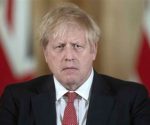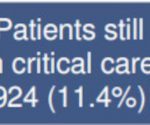Face coverings in shops: it’s all about store policy and its reward or punishment – so don’t make excuses to be allowed in
As stated in the article, a follow-up piece to last Thursday’s The coronavirus police state (5): the wear-a-mask-to-shop deception, was pending in expectation of UK Government publishing the pertinent legislation [which, as at the time of writing, has still not appeared]. The idea was to explore ramifications of refusing a fine in the event that one is confronted by police on the premises of a shop.
Now, it is hoped that the reader will agree, in the said article, there was already an indication of some doubt that police would get involved in a scenario where a person would not wear a mask in a shop. And, if we can detect the expression of a gut feeling then, now that we are a few days removed, it is perhaps proving to be a discerning one, because the prospect of people having to deal with police looks even more remote than it did. This is because what the UK Government’s so-called coronavirus restrictions regulation concerning face coverings in shops in England essentially amounts to is the suggestion of store policy for businesses (to be adopted or not as any particular business see fit).
The idea stated in the last sentence of the previous paragraph stems from how UK Government has been very slow to publish the Statutory Instrument document that would set out the necessary regulation. The truth of the matter is that the thing could be made at any time ahead of when it is supposed to come into force, and so it’s not that anyone sees its long absence as indicative of its never arriving. The point is this: the fact that, come the 24th July, there would have been 10 days since the initial announcement of the regulation clearly means that there has been a lengthy gestation period in which the public has had a lot of time to be anxious. In fact, it would be accurate to say that the public has been overwhelmed by the talking point in all corners of corporate, alternative and social media. It therefore struck the author that, having created a deal of psychosis in a public fearing an impending monstrous imposition, the UK Government would not in the end even have to legislate for people to wear a mask in a shop. They would do it because they believed it was a real requirement.
At the crux of what is essentially yet another magic trick, then, are two factors: i) the public has generally been convinced about the inevitability of face coverings, and ii) shops have essentially been persuaded that they need to expect lots of customers wearing masks. This has all been done through an initial announcement in the House of Commons, and UK Government guidance. Additionally, in the case of the public – and as mentioned – intense media coverage has been pivotal. Indeed, such is the good job that has been done in the traumatising and the hypnotising of the public that the just mentioned guidance is believed by many people to be the absent legislation (as if they are finding reasons to be compliant, perhaps).
So, in the midst of these two factors, some shop management (especially amongst supermarkets) will undoubtedly say to itself, “the majority of our customers will be wearing masks, so we will implement policy according to Government guidance so that this commonality of attitude is not made jealous, agitated, or upset by those who would rebel”. And there it is: compulsory wearing of masks in certain shops achieved without legislation. Instead, all that was fundamentally required was huge amounts of exposure of the public to an idea that was fed to them remorselessly by, and in every variety of media.
Imagine, for a moment, that UK Government doesn’t in the end create the Statutory Instrument that orders the obligatory wearing of face coverings in the shops. Imagine it is in this context that you want to go into a supermarket, but are prevented from doing so at the door because you are not wearing a mask. If you point out that there is no law against not wearing a mask, it doesn’t matter. You won’t be allowed in because it will be store policy based on what the supermarket has interpreted as Government guidance. To reiterate: the wearing of face coverings in shops is purely a matter of policy.
With this in mind, look back at what chief coronahoax criminal and Health Secretary, Matt Hancock, said on the announcement of the regulation:
Should an individual without an exemption refuse to wear a face covering, a shop can refuse them entry and can call the police if people refuse to comply, the police have the formal enforcement powers and can issue a fine.
This is in line with how shops would normally manage their customers and enforcement is of course a last resort, and we fully expect the public to comply with the rules as they have done throughout the pandemic.
What is essentially being done here is instruction – or guidance, if you like – given to shops to refuse entry at the door. It is also instruction to call police to deal with a person or people who might prove to be undesirable on a shop’s premises. But the really significant line is in the second paragraph: it says, basically, these things are what shops would normally do. Exactly; they can deny access and service according to policy, and they can invite police onto their premises to deal with customers who they would consider to be trespassing.
On the flip side, what is important to understand is that because police involvement would be strictly dependent on a shop calling for intervention along normal lines – and note that the chair of the National Police Chiefs’ Council has said that “retailers would be expected to refuse entry to customers without masks, and only call police ‘as a last resort’” – then it means that there is no legal pressure on shops to adopt the policy that is being urged upon them by UK Government. To put it another way, there is no punitive measure to be taken against shops for not making it a store policy whereby access and service is denied anyone refusing to wear a mask.
So, here are the fundamentals of the issue. Either a shop will let you in without a mask, and then serve you without a mask, or it will not. If a shop insists on a mask, either at the door, or at any other time when you are on the shop’s premises, then it’s because it is the store policy. There is no shop under any pressure from UK Government to enforce any regulation that may or may not have been published by 24th July. So, your beef, if you didn’t want to wear a mask and you were being required to do so, would be with the business. It wouldn’t, at that particular moment, be with UK Government – so don’t visualise yourself banging heads with it in such a situation. (And this is mentioned because this is about identifying the right fight to have at the right moment. You can punish UK Government, if you so desired, at the quiet of home by withholding the two things it wants from you: your money and your vote).
As for the shop that is essentially implementing a policy that you do not agree with, the normal way for any self-respecting person to react would be take their custom elsewhere – and this is indeed what must be done. Now, it is understood that on occasion some people will have no other choice but to shop in a specific place, and it might be the case that to do so they will have to wear a mask. Remember, this would be about abiding with shop policy – and the author would have this to say about it: if it needs to be done, do it as little as possible (and perhaps signal that it is being done under protest – tools are available). If, on the other hand, you don’t really need what you came into the shop to buy, or if you can go somewhere else to get it, then walk away from the shop.
It is very disheartening to see lots of people on social media engaging in a talking point that involves the claiming of medical exemption (without legitimacy) in order to get into shops. The problem with this is that it gives power to the illusory regulation. The exemption at issue is not really one from legislation, it is exemption from the application of a shop’s policy, and there’s a really strong objection to be had about it: if you are inventing excuses to get into a store that you shouldn’t be giving your custom to, then what the hell are you doing? The exemption should be claimed by people who qualify for it, and have no other choice but to visit a store where policy is for face masks to be worn.
Ultimately what we need to do is make it unmistakably clear to shops, which would have a policy denying service to people who will not wear facemasks, that if they persist in that policy, they can expect permanent boycott until they are driven out of business.
Update, 24th July:
Today brings confirmation that the UK Government’s scheme for the compulsory wearing of face coverings inside “relevant places” might well be legislation, but it is still bluff. And it is absolutely about urging shops to adopt a particular policy – that they don’t actually have to enforce.
From The Sun: “POLICE won’t be called if people refuse to wear face masks, a Government minister admitted this morning.”
It goes on:
Ms Whately [‘Care Minister’] said while the Government will encourage people to wear one police won’t be sent in where people refuse to comply.
While Whately claims that UK Government is “expecting the vast majority of people to wear face masks”, that there is a withdrawal of the threat of police even at the sound of the starting pistol suggests that there is too much non-compliance.



















Ask to sign on to their risk assessment.
Has every shop conducted a Risk Assessment?
As you point out, it is the shops choice to insist on masks as a condition to entry. A scenario could be envisaged, where the wearing of a mask could exacerbate a pre-existing condition that is known or otherwise.
I live in Scotland and I have talked to more than a few older folk, who are wearing masks when they shouldn’t be because of conditions such as COPD. This is due to percieved peer pressure.
I do not wear a mask as I have asthma, peer pressure or not I will not wear a mask. I have had this condition all my life, I do not care what these virtue signal drongos think.
The Statutory Instrument came into force as of yesterday at 1.15 under the hand of that lovely Matt Hancock:
https://www.legislation.gov.uk/uksi/2020/791/contents/made